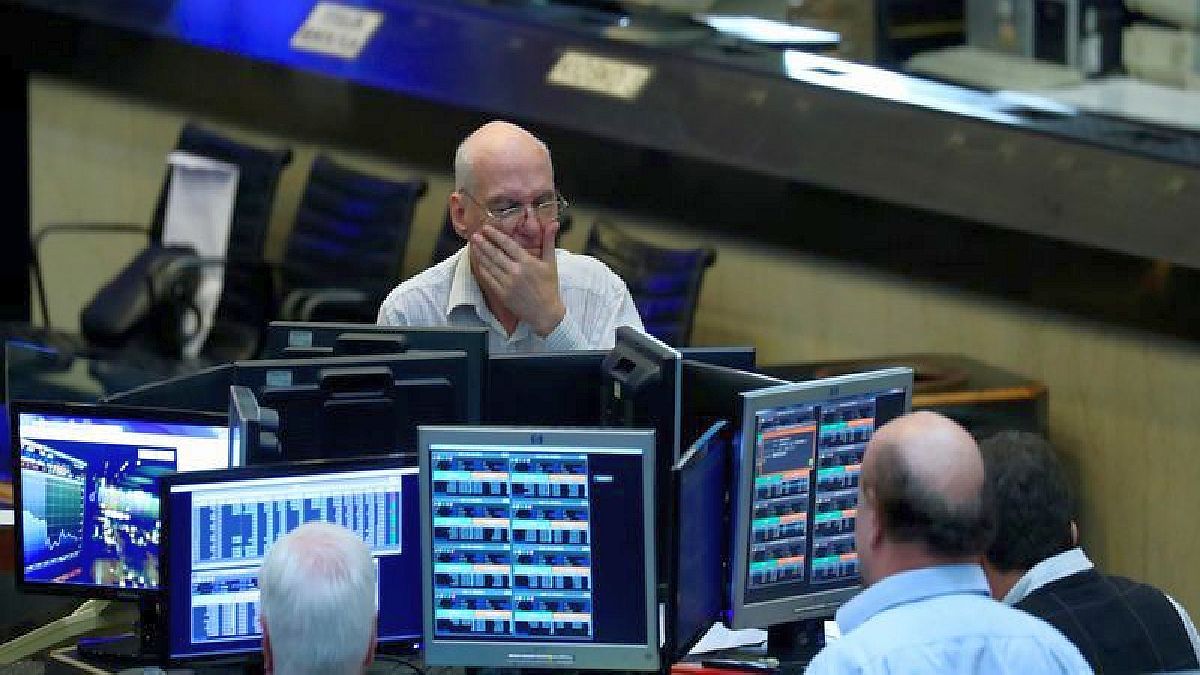The S&P Merval of Argentine Stock Exchanges and Markets (BYMA) gained 1%, to 88,820.32 points, against a decline of 3.94% between Friday and Monday, boosted by financial and energy papers.
The current international firmness of oil and wheat are shaking businesses with assets, operators agree.
pre-closing
Without a ceiling in sight, the Argentine country risk rose this Monday for the tenth consecutive day and reached a new record since the debt swap with private companies in 2020, while dollar bonds lost up to more than 6%, due to the growing global tensions over the Russian invasion of Ukraine, at a time when Congress began to discuss the agreement with the International Monetary Fund (IMF) to refinance some 40,000 million dollars.
The benchmark prepared by the JP Morgan bank reached 1,991 units during the day, the maximum since September 2020, with which it exceeded the previous cap of 1,969 units registered at the end of January. Finally, it closed with a rise of 2.3% to 1,971 points, that is, in two weeks it accumulates a rise of 15% or 262 points.
The country’s index restarted on September 10, 2020 in the area of 1,083 points after a millionaire restructuring of sovereign debt held by private creditors.
Against this background, dollar-denominated bonds plummeted again, and in some cases lost more than 6%. Among the most outstanding falls of the day appeared the Global 2046 (-6.3%); the Bonar 2035 (-4.9%); Global 2029 (-4.3%); and Bonar 2038 (-3.8%).
In this way, the Argentine titles returned to test the lows of January (before the news of the agreement with the IMF).
At the local level, the market turned its attention to the debate in Congress about the agreement with the Fund. The Minister of Economy, Martín Guzmán, presented in the Chamber of Deputies the guidelines of the understanding with the IMF, whose approval is not guaranteed because the ruling party needs the support of the opposition.
Guzmán predicted a difficult and destabilizing scenario for the Argentine economy in the event that the project is not approved.
The new agreement, which must be approved by Congress and by the international credit institution, establishes that the payment period for each disbursement is 10 years, with a grace period of four and a half years, so the country will begin to pay off the debt in 2026 and will end in 2034.
Internationally, the conflict in Ukraine triggered a rise in international oil prices, which reached their highest level since early 2008, fueling fears of higher inflation and lower global economic growth.
Russia announced on Monday that it will immediately cease fire if Ukraine meets a number of conditions, including recognizing Crimea as Russian territory and accepting the breakaway republics of Donetsk and Lugansk as independent states. On the other hand, the United States is considering a ban on oil imports from Russia, which has pushed oil up to nearly $140 (Brent).
“The outflow of capital from the funds of emerging countries impacted on the Argentine debt, and annulled the positive effect of the agreement with the IMF staff, at least for now,” estimated the StoneX brokerage.
In the segment of pesos, on the other hand, the dollar-linked sovereign curve rose to 0.4%, “with hands carrying a position to make a synthetic rate in Rofex,” said Grupo SBS.
Finally, and after several days of increases, the CER debt remained practically unchanged, returning something in the middle section (TX26 -0.2%).
Source: Ambito
David William is a talented author who has made a name for himself in the world of writing. He is a professional author who writes on a wide range of topics, from general interest to opinion news. David is currently working as a writer at 24 hours worlds where he brings his unique perspective and in-depth research to his articles, making them both informative and engaging.




